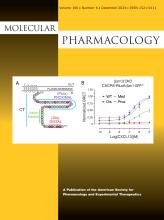Abstract
Background: microRNAs, which contribute to the post-transcriptional processing through 3'-UTR-interference, have been recently shown to be involved in the regulation of ABC membrane transporters. The aim of this study was to investigate if ABCC2, an important efflux transporter for various endogenous and exogenous compounds at several compartment barriers, is subject to miRNA mediated post-transcriptional gene regulation. Methods: We screened the expression of 377 human miRNAs in HepG2 cells after 48 hours of treatment with 5 μM of the PXR ligand rifampicin or vehicle using RT-PCR based low-density arrays. Specific miRNA, ABCC2 mRNA and protein expression was monitored in HepG2 cells under treatment of rifampicin for 72 hours. Loss and gain of function experiments, as well as reporter gene assays, were performed for further confirmation. Results: Highly deregulated miRNAs compared with in-silico data revealed miR-379 as candidate miRNA targeting ABCC2 mRNA. Under rifampicin treatment, ABCC2 mRNA increased significantly with a maximum fold change of 1.56+/-0.43 after 24 hours. Also miR-379 increased (maximally 4.10+/-1.33-fold after 48 h), whereas ABCC2 protein decreased with a maximum fold change of 0.47+/-0.08 after 72 hours. In contrast, transfection of miR-379 inhibitor led to an elevation of ABCC2 protein expression after rifampicin incubation for 48 hours. Conclusion: We identified a miRNA negatively regulating ABCC2 on the post-transcriptional level and provide evidence that this miRNA impedes over-expression of ABCC2 protein after a PXR-mediated external transcriptional stimulus in HepG2 cells.
- Received December 18, 2010.
- Revision received May 3, 2011.
- Accepted May 3, 2011.
- The American Society for Pharmacology and Experimental Therapeutics






